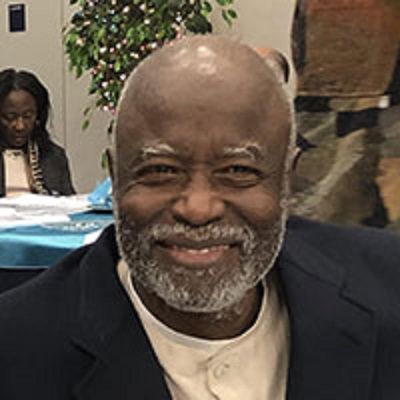William “Bill” Jenkins, the government epidemiologist who tried to halt the unethical Tuskegee syphilis experiments of the 1960s, has died at age 73.
Dr. Jenkins passed away Feb. 17 in Charleston, S.C. from complications of the inflammatory disease sarcoidosis — the same condition that led to the death of comedian Bernie Mac — his wife told The New York Times.

Dr. Bill Jenkins also worked to reduce AIDS in the Black community and later became director of AIDS prevention for minorities. at the CDC. (Image courtesy of UNC.edu)
According to the paper, Jenkins was working as a statistician for the United States Public Health Service in the ’60s when he first learned of the Tuskegee study. A colleague had told him about the experiments while they were still going on but didn’t give much detail, which prompted Jenkins to do a little research of his own.
What he found were dozens of articles about it in medical journals, and that even some chapters of the American Medical Association supported it. The ethics of the experiment didn’t sit well with him, however, and led Jenkins to devote the rest of his life to fighting racism and injustice in the health care industry.
In a study lasting from 1932 to 1972, the federal government experimented on hundreds of Black men in Macon County, Ala., where Tuskegee is the county seat, by allowing their syphilis to go untreated to see how the curable disease wreaked havoc on the human body. The men, who were unaware they had syphilis, were tricked into believing their ailment — which they were told was “bad blood” — was being treated, when in reality it wasn’t.
What’s worse, the study was conducted without informed consent from the participants.
Syphilis, a sexually transmitted disease, can cause brain damage, paralysis, loss of vision and even death if left unchecked. Some of the men wound up passing the disease to their wives, who then passed it on to their children.
When Jenkins expressed concerns about the study to his supervisor, he was told “not to worry about it,” according to The Times. It turns out that same supervisor was one of the researchers monitoring the racist experiment.
That’s when Jenkins took matters into his own hands, penning an article about the study that he later sent to other Black doctors and even a few local reporters. Because the article didn’t include much background or other exploratory information, however, the story never gained much traction, his wife said.
For Jenkins, the Tuskegee study confirmed what he already knew — that Black Americans were being discriminated against by the health care system and that medical research was racially biased.
Not much came of Jenkins’ article until health service epidemiologist Peter Buxtun exposed the study to The Associated Press, which later published an article detailing the horrors of the Tuskegee experiments. The news sent shock waves across the country and ended the study altogether in 1972.
Although his attempts to halt the experiment went largely unnoticed, Jenkins spent the rest of his career working to reduce illnesses among African-Americans and other folks of color. As reported by the Times, Jenkins was among one of the first researchers at the Centers for Disease Control and Prevention to recognize how dramatically AIDS was impacting Black men. He worked to reduce rates of the disease in Black communities and was later appointed the Director of Aids Prevention for minorities at the CDC.
His efforts didn’t stop there. Jenkins was among those who forced the federal government to issue a formal apology to the survivors of the Tuskegee study, an apology delivered by then-president Bill Clinton in 1997. Jenkins also oversaw the government’s Participants Health Benefits Program, which provides free lifetime medical care to the men and their families and their families harmed by the experiment.
“What they deserve is the best medical care we can provide,” Jenkins told The Times in 1997. “I try to give them the care that I would want to give to my mother.”
Jenkins is survived by his wife. Dr. Diane Rowley, and daughter Danielle Rowley-Jenkins.